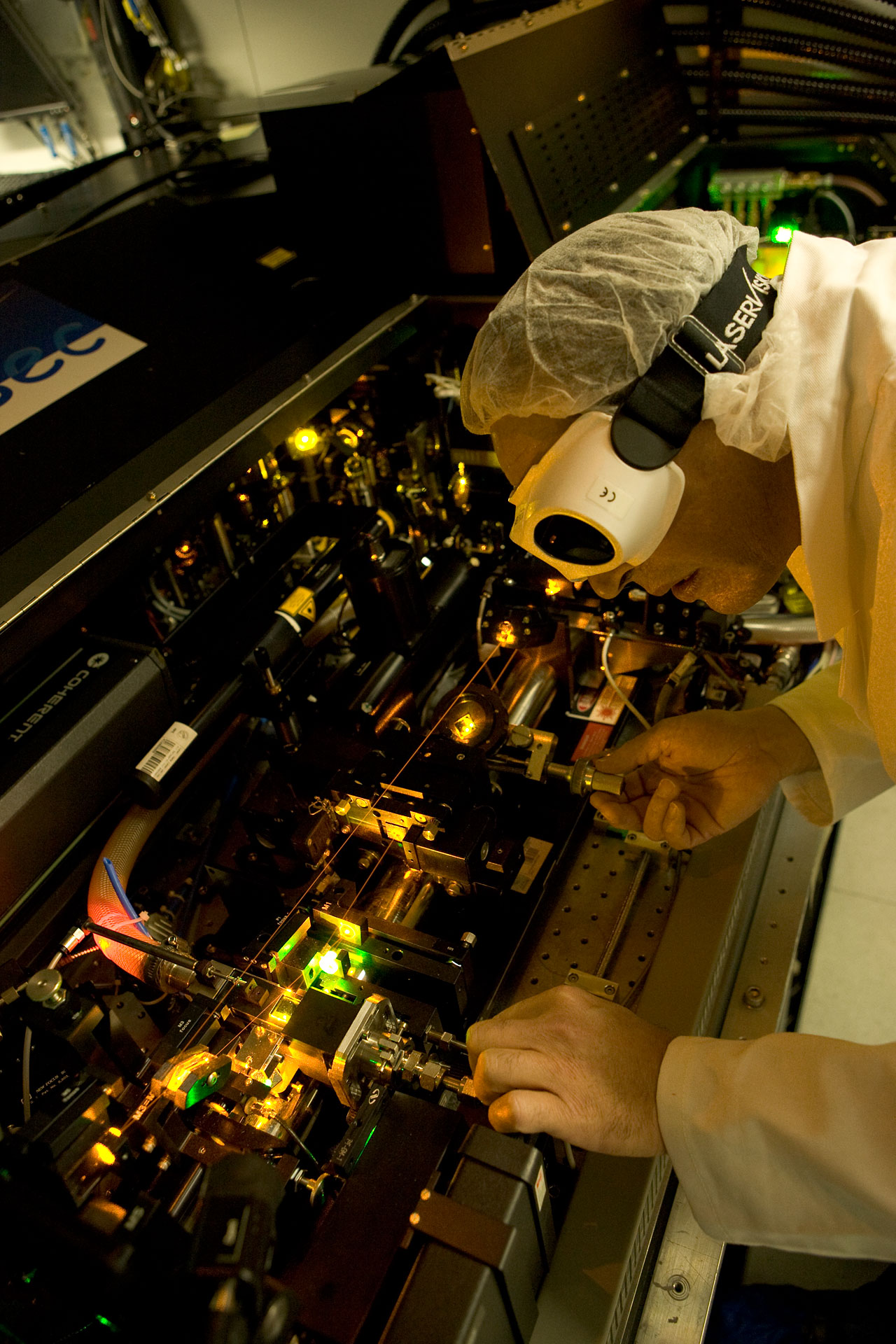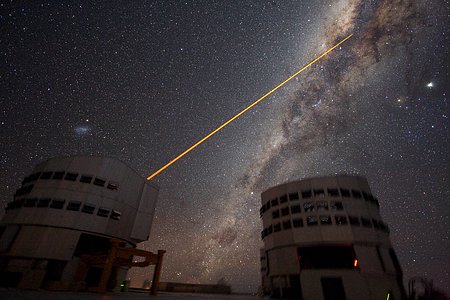Óptica Adaptativa
Aunque la óptica activa puede garantizar que la forma del espejo siempre sea la óptima, la turbulencia de la atmósfera terrestre distorsiona las imágenes obtenidas incluso en los mejores sitios de observación del mundo, incluyendo el Observatorio Paranal de ESO, en Chile, hogar del VLT (Very Large Telescope). Esta turbulencia hace que las estrellas parpadeen de una forma que deleita a los poetas, pero frustra a los astrónomos, ya que causa la pérdida de nitidez de los detalles más sutiles del cosmos. Al realizar observaciones directamente desde el espacio, los astrónomos pueden evitar este efecto de distorsión, pero los altos costos asociados a la construcción y operación de telescopios espaciales, comparados con el uso de instalaciones terrestres, limita el tamaño y el alcance de los telescopios que podemos colocar fuera de la Tierra.
Los astrónomos han recurrido a un método denominado óptica adaptativa para resolver este problema. Sofisticados espejos deformables controlados por ordenador pueden corregir en tiempo real la distorsión provocada por la turbulencia de la atmósfera terrestre, obteniendo imágenes casi tan nítidas como aquellas tomadas desde el espacio. Una vez hechas las correcciones, la óptica adaptativa permite al sistema en cuestión captar detalles más precisos de objetos astronómicos con una emisión de luz muy tenue, detalles que de otra forma serían imperceptibles desde la Tierra.
Esta tecnología requiere de una estrella de referencia con un brillo bastante intenso, que debe encontrarse muy cerca del objeto a estudiar. Esta estrella se usa para medir la distorsión provocada por la atmósfera de modo que el espejo deformable pueda corregirla. Debido a que no es posible encontrar estrellas como estas en cualquier parte del cielo nocturno, los astrónomos pueden crear estrellas artificiales emitiendo un poderoso rayo láser hacia las capas superiores de la atmósfera terrestre. Gracias a las estrellas guías láser, hoy en día es posible observar prácticamente todo el cielo con la óptica adaptativa.
Desde 1989, ESO ha liderado el desarrollo de estas tecnologías de óptica adaptativa y estrella láser. Las instalaciones de Estrella de guiado láser del VLT fueron las primeras del hemisferio sur. A lo largo de los años, ESO ha colaborado con centros de investigación y empresas europeos, permaneciendo líderes en el desarrollo de esta tecnología. El Observatorio Paranal cuenta hoy con los sistemas de óptica adaptativa más grandes y avanzados del mundo.
Las instalaciones de óptica adaptativa de ESO han obtenido destacados resultados científicos. Estos incluyen las primeras observaciones directas de un planeta extrasolar cerca de una estrella brillante, así como el análisis detallado y la caracterización del entorno que rodea al agujero negro ubicado en el centro de la Vía Láctea..
La próxima generación de óptica adaptativa estará disponible tanto en el VLT como en el Extremely Large Telescope (ELT), con el apoyo de contratos financiados por la Comisión Europea. Esto incluye el uso de varias estrellas guías láser en el VLT, además de avanzados instrumentos de óptica adaptativa para la búsqueda de planetas como SPHERE. Sistemas aún más sofisticados, diseñados para cumplir con los desafíos del ELT –un revolucionario telescopio con un espejo primario de 39 metros-, se encuentran en fase de desarrollo. Recientemente, se han logrado avances significativos que permitirán corregir un campo visual más amplio, resultado que tendrá un gran impacto en el diseño de futuros sistemas de óptica adaptativa para el VLT y el ELT.


